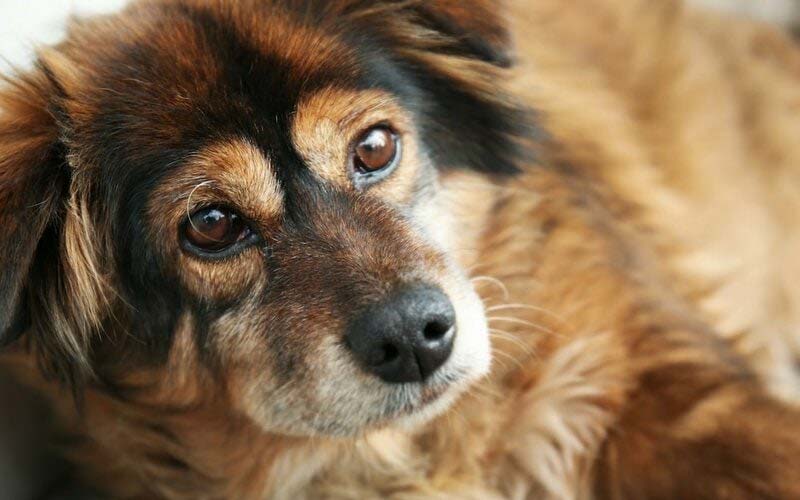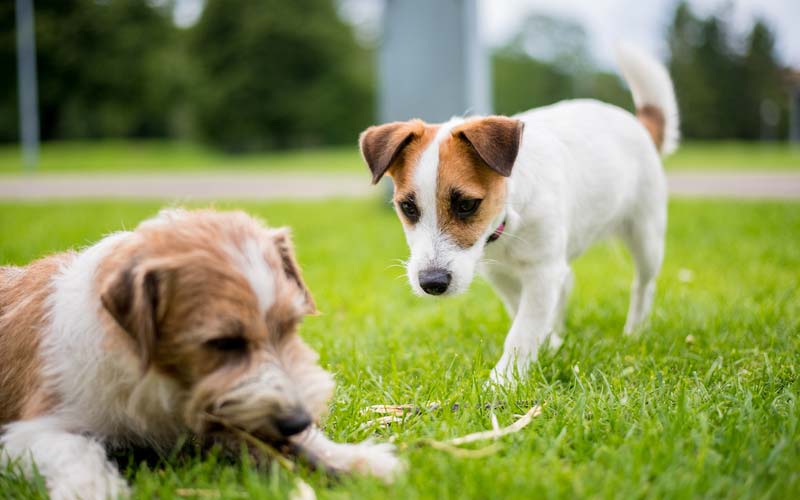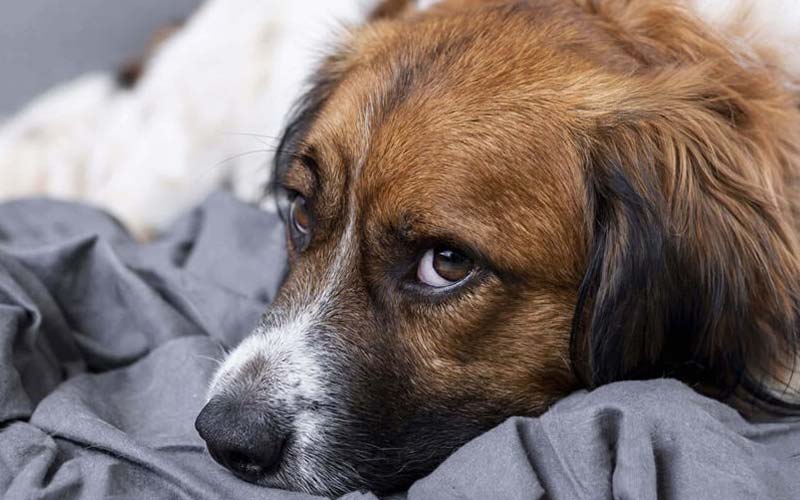Do dogs get jealous of other dogs? The answer is yes, and there are a number of reasons why this might happen. In this article, we’ll discuss the signs of jealousy in dogs, as well as some tips for helping your dog cope with jealousy.

In the past, it was believed that dogs were not capable of experiencing jealousy. However, recent studies have shown that dogs do indeed experience this emotion. Jealousy can be triggered by a variety of factors, including the introduction of a new dog to the household, the attention given to another dog, or even the perceived threat of a rival.
Signs of Jealousy in Dogs
Jealousy can manifest itself in different ways in dogs, depending on their personality and the situation. Some of the common signs of jealousy in dogs are:
Destructive behavior: Dogs may chew on furniture, scratch at doors, or dig holes in the yard. This can be a way of expressing their frustration or anger, or a way of getting attention from their owner.
Aggression: Dogs may growl, bark, or even bite at the other dog or person they are jealous of. This can be a way of asserting their dominance or protecting their territory, or a way of showing their displeasure or fear.
Pacing or whining: Dogs may pace back and forth or whine excessively. This can be a way of showing their anxiety or stress, or a way of seeking attention or comfort from their owner.
Lack of attention: Dogs may ignore their owner or avoid them altogether. This can be a way of showing their resentment or sadness, or a way of punishing their owner for neglecting them.
Causes of Jealousy in Dogs
Jealousy can be caused by a number of factors, depending on the dog’s temperament and the situation. Some of the common causes of jealousy in dogs are:
Introduction of a new dog: Bringing home a new puppy or another adult dog can be a major change for your existing dog. They may feel threatened by the new arrival and become jealous of the attention they are receiving. They may also feel insecure about their place in the family or their relationship with their owner.
Attention given to another dog: Even if your dog is not the only one in the household, they may still feel jealous if they receive less attention than another dog. This can happen if you have children or other pets, or if you spend more time with another dog. They may feel left out or unloved by their owner.
Perceived threat of a rival: If your dog sees another dog as a rival, they may become jealous of the attention or resources that the other dog is receiving. This can happen if you go to the dog park, or if your dog sees another dog on a walk. They may feel challenged or intimidated by the other dog, or they may want to compete with them for your affection or approval.

Tips for Helping Your Dog Cope with Jealousy
Jealousy is a normal emotion that can be experienced by dogs of all ages and breeds. However, it can also lead to unwanted behavior and stress for both you and your dog. Therefore, it is important to help your dog cope with jealousy and prevent it from escalating. Here are some tips for helping your dog cope with jealousy:
Introduce the new dog slowly: If you are bringing home a new dog, make sure you introduce them to your existing dog slowly and carefully. Let them meet in a neutral place, such as a park or a friend’s house, and keep them on a leash. Give them time to get used to each other’s presence and smell, and reward them for being calm and friendly. Gradually increase the time and space they share, and supervise them closely until they are comfortable with each other.
Praise and reward your dog for positive behavior: When your dog is behaving well, be sure to praise and reward them. This will help them to feel good about themselves and reduce their chances of becoming jealous. For example, if your dog is sharing a toy or a bed with another dog, give them a treat or a pat. If your dog is ignoring another dog or a person, give them a verbal praise or a smile. If your dog is playing nicely with another dog, join them in the fun or give them a toy.
Spend quality time with your dog: Make sure you are giving your dog plenty of attention, even if you have other pets or commitments. Spend some time with your dog every day, and make them feel special and loved. For example, you can take your dog for a walk, play with them, groom them, or cuddle with them. You can also involve your dog in your daily activities, such as watching TV, cooking, or working. This will help your dog to feel secure and happy, and prevent them from feeling jealous or neglected.

Teach your dog basic obedience commands: This will help you to have more control over your dog’s behavior and prevent them from acting out due to jealousy. For example, you can teach your dog to sit, stay, come, leave it, or drop it. You can also teach your dog to wait for their turn, or to go to their place when you are busy or have guests. This will help your dog to learn boundaries and respect, and to follow your rules and instructions.
Conclusion
Jealousy is a normal emotion that can be experienced by dogs of all ages and breeds. By understanding the signs of jealousy and the causes of jealousy, you can help your dog to cope with this emotion and reduce the risk of destructive or aggressive behavior. By following the tips above, you can also help your dog to feel more confident and secure, and to enjoy a harmonious and happy relationship with you and other dogs.